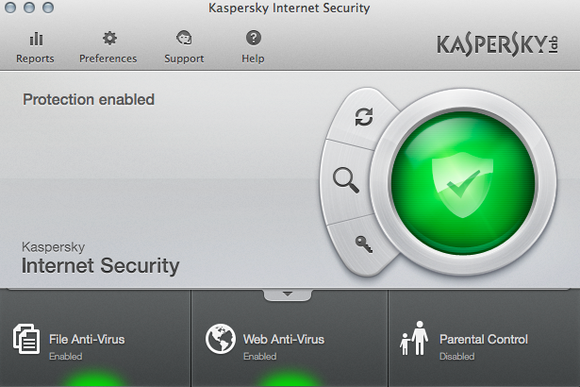

- #Kaspersky for mac review 2015 software#
- #Kaspersky for mac review 2015 code#
- #Kaspersky for mac review 2015 password#
This test, which was conducted on an Android, showed that Kaspersky had 100 percent detection of known malware and achieved 99.9 percent protection against them. Just to be sure our results were right, we also looked at independent lab data from A.V Labs.
#Kaspersky for mac review 2015 software#
In fact, it was one of only two software out of the 40 we tested to detect all five viruses. Kaspersky Anti-Virus passed this test with flying colors. We intentionally downloaded five dangerous files containing adware, spyware, malware, and more-but don’t worry, we didn’t open them! Since there are all kinds of threats out there, we wanted to use these same files across all of the antivirus software that we tested to see how they performed. Testing Kaspersky for Virusesīut how could we know if the software worked if we just got lucky and didn’t have viruses on our computer? We decided this was a question we could answer. But for the purpose of finding and stopping any nasty computer bugs, Kaspersky Antivirus’s coverage was both comprehensive and reassuring.
#Kaspersky for mac review 2015 password#
It’s worth noting that Kaspersky Anti-Virus doesn’t offer a firewall, child controls, or password storage, though those are all available in other computer security packages like Internet Total Security.
#Kaspersky for mac review 2015 code#
If it still makes you nervous, you can adjust your settings to opt out of the code insertion. And more importantly, Kaspersky updated its code so that individual computers can’t be tracked. 5 We don’t think this is a reason to shy away from Kaspersky, though-advertisers work hard to find our data wherever they can. In 2019, journalists pointed out that the way Kaspersky protects users online, by injecting a snippet of code into URLs, could allow other companies to track a computer’s browser traffic for advertising purposes. While that point is hard to prove, we found it reassuring that last year, Kaspersky moved its data centers holding non-Russian data from Russia to Switzerland. Kaspersky has denied ties with the Russian government and claimed that the bans are the result of U.S-Russia tensions. 3 And the U.S argues that Kaspersky hacked into an NSA contractor’s laptop through its software back in 2015. 2 Twitter has banned Kaspersky Lab from advertising on the site, and Best Buy even stopped selling the company’s products. 1 In 2017, the U.S Department of Homeland Security banned the use of Kaspersky software by any federal agency, and Britain followed suit shortly after.

Rumors about Kaspersky started spreading back in 2012 when Bloomberg pointed out a pattern of new hires with connections to the Russian military establishment. But, in recent years, we’ve seen disturbing allegations of ties between the company and the Russian government. They’ve even identified hacking plots run by governments. Some background information: the company itself, founded in Russia in 1997, is a global leader in identifying emerging Internet security threats and malware.

We think it’s important to note upfront that Kaspersky Lab’s reputation is not squeaky clean. First things first-let’s address the elephant in the room.


 0 kommentar(er)
0 kommentar(er)
